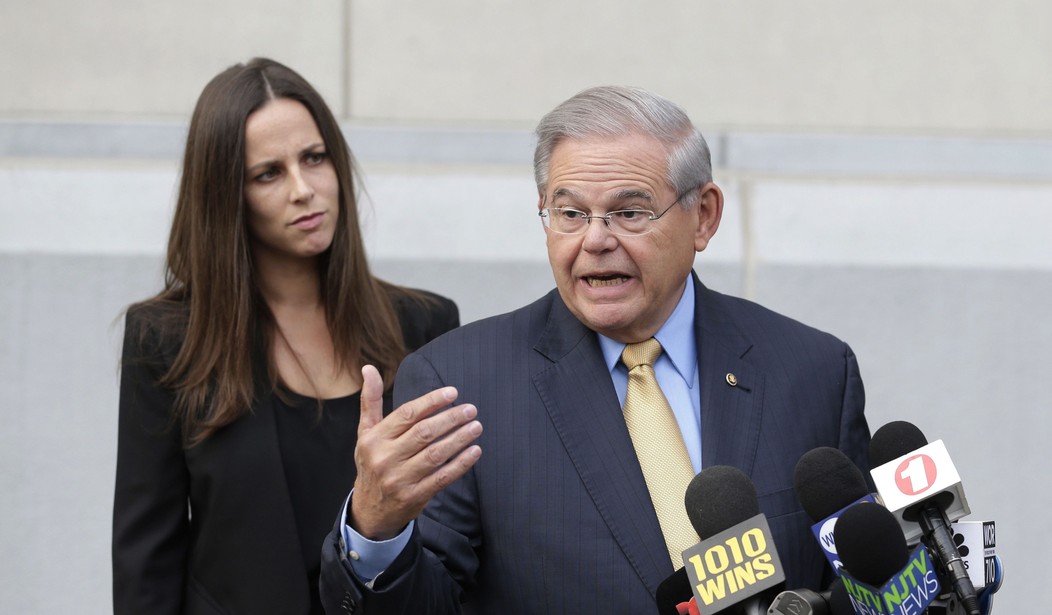In his opening statement, Kirk Ogrosky, the defense attorney for Sen. Menendez’ co-defendant Salomon Melgen, claimed that the government’s case is really an attack on Hispanic-Americans. From Politico:
“Sal and Bob were part of a fellowship of Hispanic Americans. Entrepreneurs, businessmen, doctors, politicians. You’ll hear this at trial: their idea was to pay it forward, help young Hispanic Americans improve their lives, lift up their community, play a larger role in their community,” Ogrosky said at the second day of the trial, which began Wednesday. “This case isn’t only an attack on those two men. It’s an attack on that whole group.”
This makes it sounds as if the trial is slipping into O.J. Simpson territory, i.e. defense attorneys using identity politics as a way to avoid talking about the evidence. And there is lots of evidence. Prosecutors claim that favors Melgen did for Menendez were extensive and done in exchange for political favors. From Philly.com:
Prosecutors say Melgen bribed Menendez with scores of trips on his private jet, vacations at exclusive Dominican resorts and a high-end Paris hotel, and other gifts. Although the senator didn’t pay for any of these gifts at the time – or report them on his financial disclosure forms – he did aid Melgen in another way, prosecutors say: by using the power of his office to help the doctor’s foreign girlfriends obtain visas and pressuring high-level government officials to change policies ranging from Medicare reimbursement to Dominican port security that would advance the doctor’s financial interests.
Defense attorneys are not disputing many of the particulars. They acknowledge that Melgen did a lot of favors for Sen. Menendez. Instead, they are arguing that those favors were the result of a close personal friendship. From the LA Times:
Defense lawyers argued that prosecutors were distorting a close friendship that began long before Menendez joined the Senate in 2006. The two men spent holidays together and attended family events like weddings and parents’ funerals…
But [prosecutor Peter] Koski said that the lack of a stated agreement didn’t eliminate the corruption. “Your common sense tells you that’s not the way people behave when they commit crimes,” the prosecutor told the jury.
“Friends can commit crimes together,” he said. “Friends can bribe each other.”
If neither party throws the other under the bus, will prosecutors have a strong enough case that this was bribery? The LA Times reports the government has no tapes or cooperating witnesses to back up its claims. It seems prosecutors are relying on the jury to see the quid pro quo in the exchange without anyone explicitly admitting that is what it was. Perhaps that’s why defense attorneys are introducing the issue of race, to suggest to the jury that there is an ugly, alternative explanation for the government bringing the entire case.








Join the conversation as a VIP Member